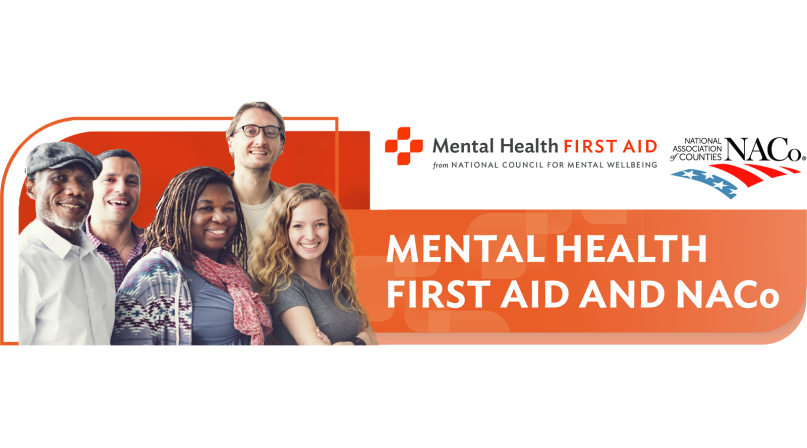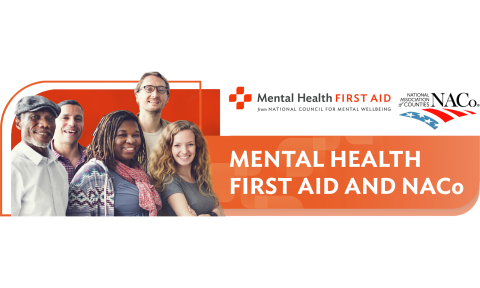Facing a second pandemic: A helping hand for counties from Mental Health First Aid
Upcoming Events
Related News

Key Takeaways
County leaders have told NACo they fear an upcoming “second pandemic” pertaining to COVID-19-related mental health issues that communities are not prepared to face. To help tackle the coming challenges, NACo has partnered with the National Council for Mental Wellbeing to promote the Mental Health First Aid program to help counties deal with mental health challenges in their communities.
Originally created in Australia in 2001 and adapted for use in the United States, the Mental Health First Aid training program educates participants on how to recognize mental illness symptoms and signs of substance use, how to discuss these complicated issues in the workplace and how to fight back against the stigma around mental illness and seeking help.
Learn More
The program is designed to empower county officials of all levels, including fire and emergency medical services personnel, law enforcement and school district employees. The council’s five-step program can help county employees address the difficulties of treating mental health, burnout and other symptoms.
Through the program, participants will “learn risk factors and warning signs for mental health and addiction concerns, strategies for how to help someone in both crisis and non-crisis situations, and where to turn for help.”
With more than 15,000 trained instructors, the council has educated 2.5 million Americans and counting. Instructors focus on teaching the five steps of the program called “The Mental Health First Aid Action Plan.” The five steps are:
- Assess for risk of suicide or harm
- Listen nonjudgmentally
- Give reassurance and information
- Encourage appropriate professional help
- Encourage self-help and other support strategies.
Participants learn by treating symptoms through practice exercises surrounding suicidal thoughts, self-injury, panic attacks, trauma and more. Graduates of the program include police officers, elected leaders, veterans and school employees.
Mental health treatment infrastructure in the United States is mostly lacking. One in five adults face some form of mental illness, while one in 25 face a serious mental illness, according to the National Association of County Behavioral Health and Developmental Disability Directors.
The National Council for Mental Wellbeing-NACo Partnership will provide critical education to participating counties through trained instructors with the goal of making mental health education training “as common as CPR.”

Attachments
Related News

House Agriculture Committee introduces 2026 Farm Bill
On February 13, House Agriculture Committee Chairman G.T. Thompson (R-Pa.-15) introduced the House version of the 2026 Farm Bill, the Farm, Food, and National Security Act of 2026.

USDA and HHS release new dietary guidelines
On January 7, U.S. Department of Agriculture Secretary Brooke Rollins and U.S. Department of Health and Human Services Secretary Robert F. Kennedy, Jr. unveiled the new Dietary Guidelines for Americans, 2025–2030.